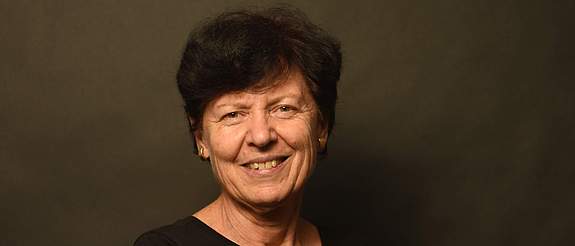TMI: How long have you been living in Lima, Peru?
Regine: For 20 years.
TDI: How come you as a family decided to move to Peru?
Regine: When my husband and I got married, we knew we wanted to live our lives for God and missions. We even went to a special mission school to do that. But then we started studying, working and had our first child. As a result, the plans to go overseas moved to the back of our minds and we led a very normal life. Nevertheless, it was always on our hearts to go to the mission field. So we finally decided to leave our life in Germany and our newly built house behind to invest in children in need. In November 2002, we left along with our four children.
TMI: When you started working in La Victoria, what was the atmosphere like?
Regine: It was squalid; muggings, robberies, gangs, drugs and prostitution were common. Many children were simply on the streets. The atmosphere was unsafe. You could feel that a mugging could happen at any moment. I have seen muggings myself. In a very short time, about five youths come, turn a person upside down, and shake all the valuables out of the pockets. They take everything, sometimes even their clothes.
TMI: How has that changed by now?
Regine: Although there is still theft and robberies, it has improved. The neighborhood was very chaotic and filthy, but now they've improved one of the bigger streets, and there are cars driving on it now. There is an elevated train connection, green belts and even security guards. So there is a little more order and security in the neighborhood.
TMI: What is the background of the children in the neighborhood?
Regine: The children in the neighborhood grow up not going to school because they don't have the money for school uniforms and study materials. Also, their work often doesn't pay enough to eat their fill. That's why they drop out, slip into drugs, become pregnant at an early age and have no prospects for the future. They live on the streets, either because they no longer have parents, have been abandoned, or their parents have not taken care of them, but only worked. Many keep their heads above water by mugging and sniffing glue.
That's why we also do prevention programs in the slum, so they can experience different things. They get support, a sense of purpose, and discover talents such as music. One young woman from the neighborhood was one of the few girls in her class to successfully complete school and her studies. She now works at the Transformation House and in the prevention program herself.
TMI: What is it like with the children at the Transformation House?
Regine: The children come through the "ministerio de la mujer y populación vulnerable" (=Spanish for Ministry of Women and Vulnerable (i.e. socially weak) Population). Often father or mother have run away, they live alone on the street, are neglected and the authorities try to distribute them to the orphanages that still exist.
TMI: What does a child need to be able to stand on their own two feet as an adult?
Regine: Besides a roof over their heads and food, a completed school education is important. This gives them a chance at a job with prospects for the future and security. We support them in developing their personality so that they are able to complete school. Most children want to go to school and study. They like it because they can be with other children, be children instead of having to work.
TMI: How are the conditions for children like the ones you have taken in otherwise in Lima?
Regine: Often harsh. The children establish a hierarchy among themselves. A newcomer has to fulfill certain tasks in order to be accepted by the others. In addition to bullying, there is also frequent sexual abuse.
You can discover more in the current Friends Edition about the worthwhile investment in the children.
For more information about the projects in Lima, Peru, click here.
